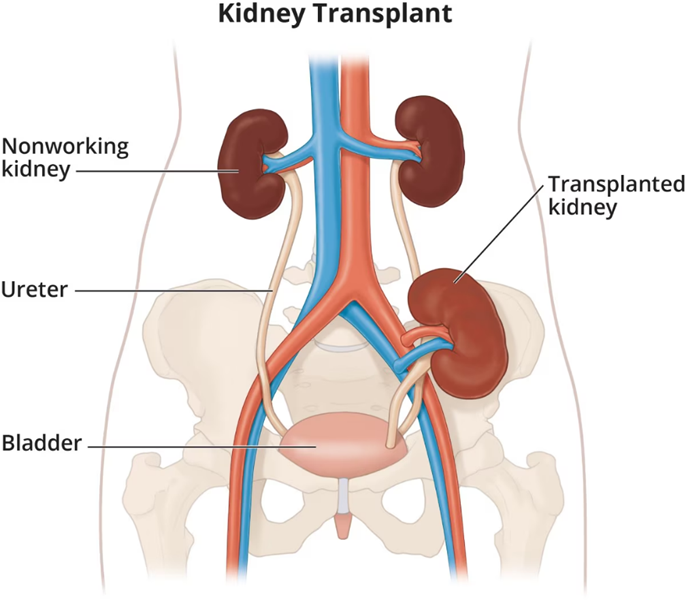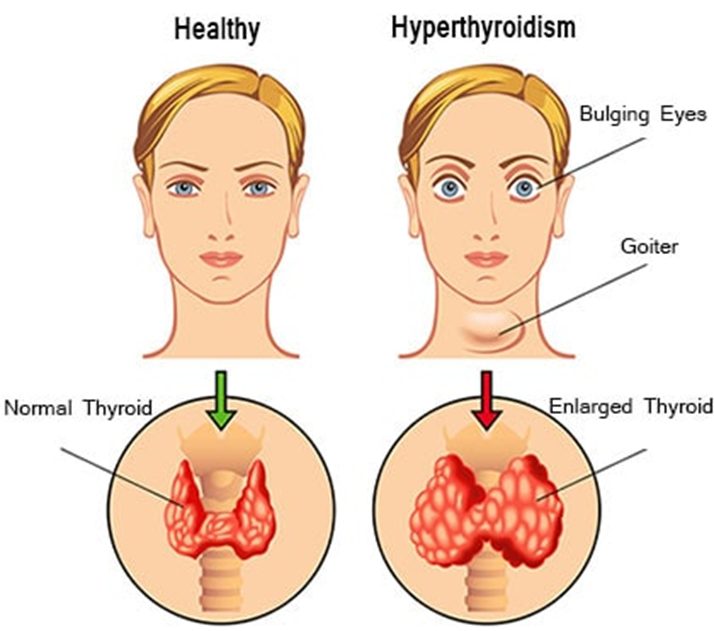A client who received a renal transplant three months ago is readmitted to the acute care unit with signs of graft rejection. While taking the client’s history, the nurse determines that the client has been self-administering St. John’s Wort, an herbal preparation, on the advice of a friend. Which information is most significant about this finding?
St. John’s Wort can decrease plasma concentrations of cyclosporine.
The client probably used this herb to treat depression.
Ingestion of St. John’s Wort can reduce the client’s intake of sodium.
Adding the herb can decrease the need for corticosteroids.
The Correct Answer is A
Choice A Reason:
St. John’s Wort is known to significantly decrease the blood concentrations of cyclosporine, a critical immunosuppressant used to prevent organ rejection in transplant patients. This herb induces the activity of cytochrome P450 enzymes, particularly CYP3A4, which increases the metabolism of cyclosporine, leading to lower plasma levels and a higher risk of graft rejection. This interaction is highly significant and requires immediate attention to adjust the client’s medication regimen and prevent further complications.

Choice B Reason:
While it is true that St. John’s Wort is commonly used to treat depression, this information is not as significant in the context of graft rejection. The primary concern is the herb’s interaction with cyclosporine, which directly impacts the effectiveness of the immunosuppressive therapy. Understanding the reason for using the herb is important, but it does not address the immediate risk of graft rejection.
Choice C Reason:
There is no substantial evidence to suggest that ingestion of St. John’s Wort reduces sodium intake. This statement does not relate to the herb’s interaction with cyclosporine or its impact on graft rejection. Therefore, it is not a significant concern in this scenario.
Choice D Reason:
Adding St. John’s Wort does not decrease the need for corticosteroids. In fact, the herb’s interaction with cyclosporine can lead to inadequate immunosuppression, potentially increasing the need for additional medications to manage graft rejection. This statement is incorrect and does not address the critical issue of cyclosporine metabolism.
Nursing Test Bank
Naxlex Comprehensive Predictor Exams
Related Questions
Correct Answer is C
Explanation
Choice A Reason:
Depression screening is important for overall health and well-being, especially in weight management programs where mental health can significantly impact outcomes. However, it is not the primary measure for determining the effectiveness of orlistat. Orlistat works by inhibiting the absorption of fats from the diet, leading to weight loss. Therefore, while mental health monitoring is crucial, it does not directly measure the medication’s effectiveness.
Choice B Reason:
Daily calorie count is a useful tool in weight management programs to ensure that clients are adhering to a calorie-restricted diet. However, it is not a direct measure of the effectiveness of orlistat. While calorie counting can help manage weight, the primary goal of orlistat is to reduce fat absorption, which is better reflected in changes in body weight and BMI.
Choice C Reason:
Body mass index (BMI) is a key indicator of weight management and is directly related to the effectiveness of orlistat. BMI is calculated based on height and weight, providing a clear measure of changes in body weight over time. Monitoring BMI helps determine if the client is losing weight as expected, making it the most appropriate assessment for evaluating the effectiveness of orlistat.
Choice D Reason:
Serum protein levels are important for assessing nutritional status and overall health. However, they do not directly measure the effectiveness of orlistat in a weight management program. Orlistat’s primary function is to reduce fat absorption, and its effectiveness is better assessed through changes in body weight and BMI rather than serum protein levels.
Correct Answer is A
Explanation
Choice A reason:
Administering iodine one hour before PTU is recommended because iodine can help reduce the thyroid hormone levels more effectively when given before PTU. This sequence ensures that the iodine is absorbed and utilized by the thyroid gland before PTU inhibits the synthesis of new thyroid hormones.

Choice B reason:
Scheduling both medications at bedtime is not appropriate. PTU and iodine solutions should be administered at specific times to maximize their effectiveness. PTU is typically given in divided doses throughout the day, while iodine solutions are often given before meals.
Choice C reason:
Administering both drugs together with a meal is incorrect. PTU should be taken on an empty stomach to ensure proper absorption, and iodine solutions are usually given before meals.
Choice D reason:
Giving a parenteral dose once every 24 hours is not applicable for these medications. PTU is administered orally in divided doses, and iodine solutions are also given orally.
Whether you are a student looking to ace your exams or a practicing nurse seeking to enhance your expertise , our nursing education contents will empower you with the confidence and competence to make a difference in the lives of patients and become a respected leader in the healthcare field.
Visit Naxlex, invest in your future and unlock endless possibilities with our unparalleled nursing education contents today
Report Wrong Answer on the Current Question
Do you disagree with the answer? If yes, what is your expected answer? Explain.
Kindly be descriptive with the issue you are facing.
